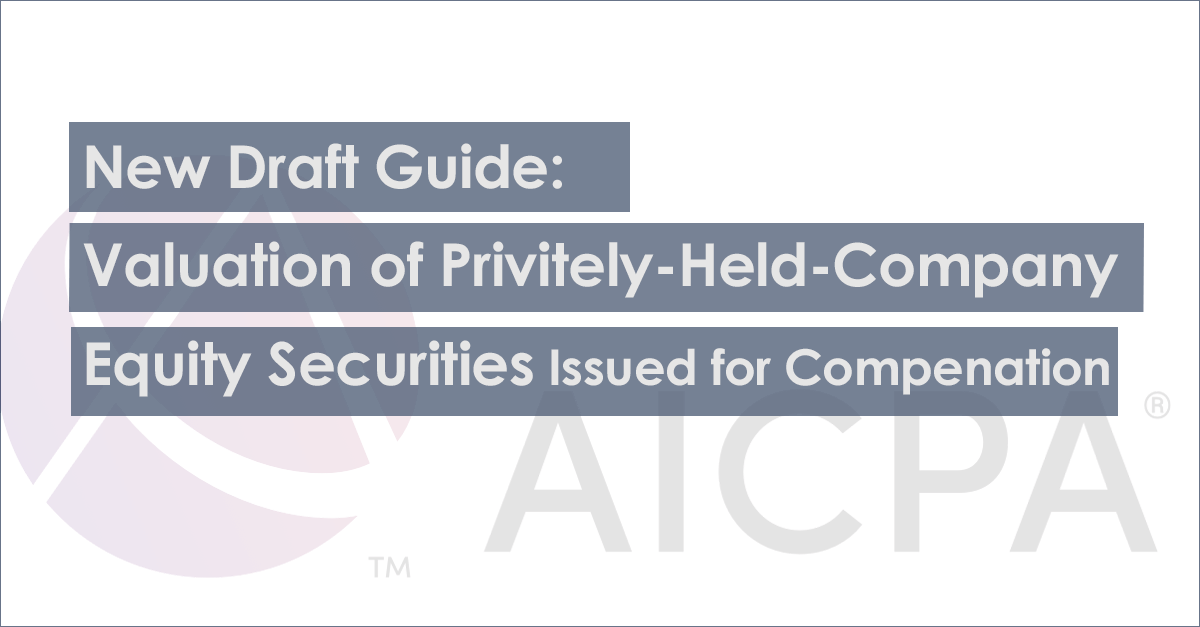 Sometimes valuing private companies seems like looking for the light switch in a darkened room. We wave our arms and legs around (read: run complex financial models), but still don’t know if we’re really any closer to the switch (read: accurate valuation estimates).
Sometimes valuing private companies seems like looking for the light switch in a darkened room. We wave our arms and legs around (read: run complex financial models), but still don’t know if we’re really any closer to the switch (read: accurate valuation estimates).
But what if someone would tell us whether to go right or left? Would that be helpful? Would the price paid in a private or secondary market transaction be useful in valuing the overall company? Accounting literature provides “clear” guidance on this subject – “it depends.”
The AICPA, in a practice aid on private company valuation, discusses two types of transactions: private financing and secondary market transactions.
Private financing deal terms can be very helpful in calculating enterprise value. It is especially true when a deal involves new, sophisticated and substantial investors who negotiate diligently and in good faith. Deals involving related parties, strategic investors, or companies in distress may skew pricing, thus providing a misleading indication of the company’s value.
Secondary market transactions are those where parties other than the company itself, are buying or selling shares, typically a minority stake. Most of these transactions involve common stock where founders, employees, or VCs are looking for liquidity. Many are indiscriminately priced as though preferred shares are changing hands, not common. Almost always, buyers or sellers do not have access to meaningful information about the company. And even when they do, the parties still appear to conduct very limited analysis.
While easy to criticize, secondary market and private financing transactions carry substantial weight when it comes to valuations. US GAAP wants to see more observable inputs in valuation models. And sometimes the volume of secondary transactions is sufficient to constitute a sort of ad hoc marketplace, providing a viable exit opportunity for current investors. Valuation analyst may discard certain financing and many secondary market transactions as inadequate, but not without careful analysis of all pertinent facts and circumstances.


